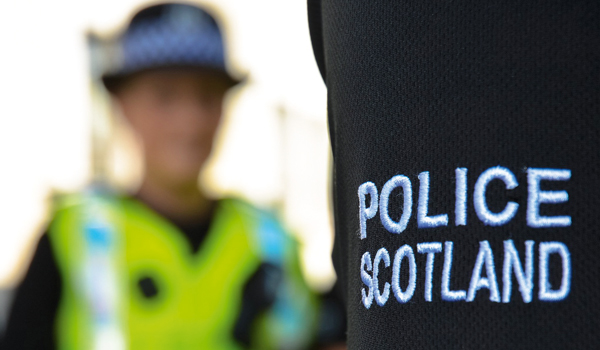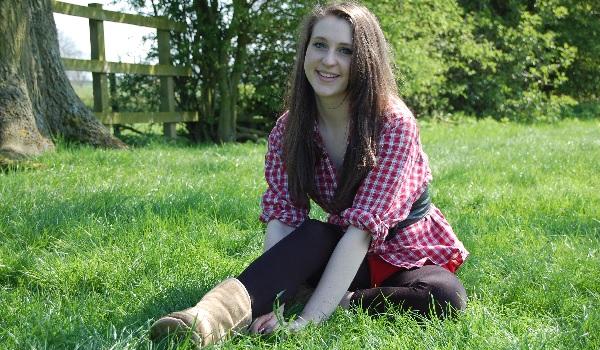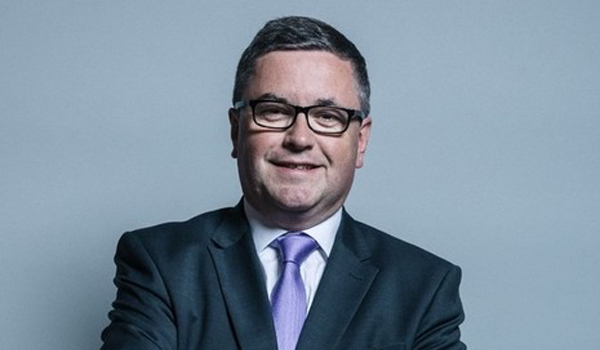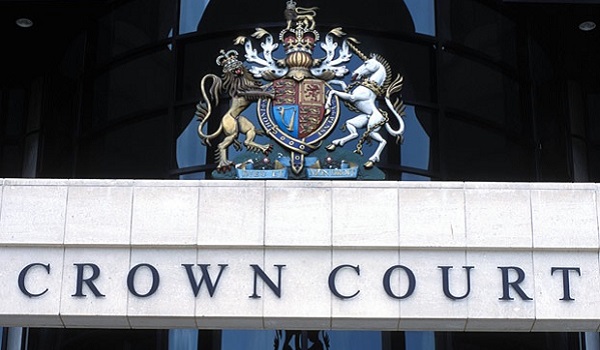1,700 offences recorded in first year of new domestic abuse law
Almost 1,700 crimes were reported under Scotland’s new domestic abuse laws during their first year in force, official figures show.
The crimes reported under the Domestic Abuse (Scotland) Act 2018 – which enables police and prosecutors to better pursue abuse involving coercive and controlling behaviour – account for a rise in overall non-sexual violent crime in 2019/20. The other categories of non-sexual violent crime collectively fell by five per cent.
The new crimes are included within the National Statistics on Recorded Crime for 2019/20, which showed there was almost no change in overall recorded crime compared with the previous year. Recorded crime was almost a quarter (24 per cent) lower last year compared to a decade before – and was at one of the lowest levels since 1974.
Police ‘clear up rates’ also increased across most offence categories during the year.
Scotland’s Justice Secretary Humza Yousaf said: “I am pleased that victims of domestic abuse have confidence in the collective actions of Scotland’s police and wider justice and third sector partners, to come forward and report these cases.
“Reports under these new laws, which reflect the reality of many domestic abuse victims, account for the rise in overall non-sexual violence recorded by police last year. We must learn from our success in reducing violence on our streets to help keep people safer in their homes, in particular those who are subjected to, or at risk of, domestic abuse.
“That requires not just a government response, but a commitment across families, friends, and colleagues to help tackle the attitudes and behaviours that allow any form of domestic abuse to persist.”
Mr Yousaf added: “The Parliament will soon be considering our further legislative plans to give police and courts powers to remove domestic abusers from victims’ homes.
“That legislation, if passed by Parliament, will lift the burden of action from those already suffering or at risk from abuse by giving greater powers to police to intervene where necessary, in turn giving victims vital breathing space to decide the best future option for them.”
The latest figures from Scotland’s Chief Statistician show that between 2018/19 and 2019/20, crimes recorded by Police Scotland remained almost unchanged, increasing by less than one per cent from 246,480 to 246,516.
The 2019/20 figures include 1,681 new crimes recorded under the Domestic Abuse (Scotland) Act 2018, following its enactment on April 1, 2019.
A further 107 new crimes were recorded towards the end of 2019/20 under the Coronavirus Act 2020 and the Health Protection (Coronavirus) (Restrictions) (Scotland) Regulation 2020.
Other findings from the 2019/20 recorded crime statistics show:
- Non-sexual crimes of violence increased by 16 per cent, from 8,008 to 9,316. This increase is due to the recording of the new crimes under the Domestic Abuse (Scotland) Act 2018. All other non-sexual crimes of violence collectively decreased by five per cent;
- Sexual crimes decreased by one per cent from 13,547 to 13,364. This is the first year since 2008/09 in which sexual crimes have not increased, although these crimes remain at the second highest level seen since 1971, the first year for which comparable groups are available;
- Crimes of dishonesty decreased by three per cent, from 114,506 to 111,409. The recording of these crimes is at the lowest level seen since 1971;
- Fire-raising, vandalism, etc, fell by one per cent from 47,997 to 47,731. The recording of these crimes is at the lowest level seen since 1976; and
- Other crimes increased by three per cent, from 62,422 to 64,589. Most of these crimes related to drug possession, crimes against public justice or handling offensive weapons.
The latest national statistics also include police clear up rates on crimes and offences in 2019/20. Between 2018/19 and 2019/20, the clear up rate increased by 0.6 percentage points (based on unrounded figures), from 51 per cent to 51.5 per cent.
Other crimes (90.0 per cent), non-sexual crimes of violence (71.7 per cent) and sexual crime (56.3 per cent) had higher clear up rates than crimes of dishonesty (37.1 per cent) and fire-raising, vandalism, etc, (26.6 per cent).

Meanwhile, the Scottish government is preparing to make changes to the “contentious” Hate Crime and Public Order (Scotland) Bill to balance protection of vulnerable groups affected by hate crime with people’s rights to freedom of speech.
Ministers are proposing to amend the legislation which, if agreed by Parliament, would mean a conviction for new offences of ‘stirring up’ hatred would be possible only where it was shown that someone intended to stir up hatred through their actions or behaviour.
The alternative and lower threshold for an offence to be triggered which is currently in the draft legislation – namely if someone’s behaviour was ‘likely to’ stir up hatred – is to be removed.
There will be no change to the threshold for the existing stirring up of hatred offences for racial hatred.
Holyrood’s Justice Committee received an “unprecedented” number of submissions to its call for views on the Bill.
And the Scottish Police Federation (SPF) had warned that the new offences of ‘stirring up’ hatred could lead to police officers determining free speech and undermining the legitimacy of the service.
Calum Steele, general secretary of the SPF, said: “We are firmly of the view this proposed legislation would see officers policing speech and would devastate the legitimacy of the police in the eyes of the public. That can never be an acceptable outcome – and we should never forget that the police in Scotland police only with the consent of the people.”
He added that the need to address those matters when they reach a criminal level is met by laws already in place and the cost to free speech of going further with the Bill would have been “too high a price to pay for very little gain”.
Justice Committee Convener Professor Adam Tomkins MSP said the number of submissions it had received was “unprecedented and reflects that this Bill is contentious”, adding: “Hundreds of individuals and organisations have written to us setting out their views on the offences that this Bill would both create and abolish.”
Announcing his intention to bring amendments in Parliament, Mr Yousaf said he was “keen to find common ground”.
“I have listened to and reflected carefully on concerns raised over the Bill, particularly over the operation of the new stirring up hatred offences and concerns that these offences do not require that the accused intended to stir up hatred,” he said.
“I recognise that there is a real risk that if the offences don’t require intent to stir up hatred, people may self-censor their activities through a perception that the operation of this aspect of the offences may be used to prosecute what are entirely legitimate acts of expression.
“The Scottish government will therefore lodge Stage 2 amendments to the Bill to make the new stirring up hatred offences ‘intent only’.
“I hope this fundamental change will provide necessary reassurance that the new stirring up hatred offences strike an appropriate balance between respecting freedom of expression while protecting those impacted by people who set out to stir up hatred in others.”
Mr Yousaf said confronting hate crime was “central to building a safer, stronger and inclusive Scotland”.
He added: “Our plans to legislate will ensure hate crime law is fit for the 21st century, giving sufficient protection to those who need it.
“I am keen to find common ground and will look at other areas of the Bill for possible reform, in doing so we will of course engage with stakeholders and opposition as the Bill goes through the usual Parliamentary scrutiny.
“I am confident that, going forward, the debate around the Bill will help build consensus on how we effectively tackle hate crime and how we can keep working together to ensure Scotland is an inclusive and forward thinking society.”
The Hate Crime and Public Order (Scotland) Bill provides for new ‘stirring up’ of hatred offences that would apply to characteristics of age, disability, religion, sexual orientation, transgender identity and variations in sex characteristics. Existing stirring up hatred offences in relation to race have existed since 1986.
Last year there were more than 5,600 hate crimes reported to the Crown Office and Procurator Fiscal Service. Racial crime remains the most commonly reported hate crime. In total 3,038 charges relating to race crime were reported in 2019/20, an increase of four per cent compared with 2018/19.
Sexual orientation aggravated crime was the second most commonly reported type of hate crime, with the number of charges reported increasing by 24 per cent in 2019/20 to 1,486.







